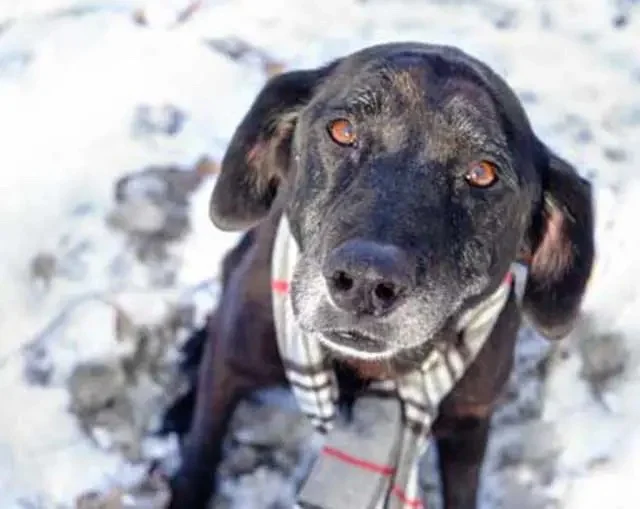
In a time when days turn into weeks, and weeks blur into months, it’s easy to have to pause and have to think about the season. After all, Denver saw snow mere hours after Labor Day! While there’s not much better than enjoying days outside with our pets no matter the conditions, when the weather outside is frightful, it’s important to recognize that chilly temperatures pose health and safety risks to our furry companions despite them having fur coats. Before Jack Frost starts nipping on any noses, let’s see how we can protect our pets.
There’s no place like home
- Keep pets away from heat sources, such as space heaters, fireplaces and wood stoves. Like us, some pets want to be toasty, so always know where your companion is and never leave them unattended. Don’t be lulled into a sense of security if your fireplace has a screen or doors or a space heater is cordoned off because pets are curious and can get burned if they touch a hot surface.
- Make sure all pets have a warm place to sleep in your home, off the floor and away from drafts. When the temperature dips, older pets and kittens may appreciate a heated pad or bed, which are both available at pet supply stores.
- While dry, itchy and flaky skin isn’t exclusive to winter, home-heating systems combined with the air outside certainly don’t help the condition. If your pet is uncomfortable and scratching, talk to your veterinarian about ways to add more moisture to their skin by using a topical moisturizer or changing their diet. Don’t forget to brush your pet, which helps stimulate their oil-producing glands, and it also prevents matted fur, which doesn’t protect them from the cold.
- When it gets darker earlier and temperatures drop, who among us hasn’t started comfort eating? Like us, pets don’t need an extra layer of fat to stay warm, but you do want to ensure they have a healthy coat and the right energy level for the winter months. In fact, pets may need fewer calories if they’re a bit more sedentary or not exercising as much. Again, like us. Speak to your veterinarian about your pet’s activities before making any dietary changes.
Up to snow good
- Don’t leave dogs outside for any length of time without supervision–even long-haired, larger pups and those with double coats. In addition to making a style statement, warm sweaters or doggy coats can keep your companion comfortable on walks.
- Dogs can’t burn calories without water, and if they can’t burn calories, they can’t keep warm. Be sure to keep plenty of water available outside and use a tip-resistant, ceramic or hard plastic water bowl rather than a metal one. When the temperature is low, a dog’s tongue can stick and freeze to metal, and the last thing you want is a Ralphie “A Christmas Story” flagpole-type moment.
- After a walk, rinse or wipe your pet’s paws, legs and stomach area, so they don’t ingest salt or dangerous chemicals. Along that line, use a pet-friendly ice-melt product for your walkways. Also, trim the hair between your pup’s pads if they have furry feet to prevent ice buildup or try using socks/booties to protect their paws.
- Never let dogs off leash on snow or ice, especially during a snowstorm, and make sure they’re always wearing current ID tags and have a microchip with up-to-date information.
- A packed snowdrift can provide a boost for dogs to escape the confines of your yard, so try not to shovel piles of snow against fences. Remember that snow and ice can slide off roofs, so be sure to keep dogs away from overhangs to prevent injuries.
Ch, ch, chilly
- Did you know a car could act as a refrigerator, holding in the cold and causing an animal to become hypothermic? And, leaving a car running isn’t a solution because carbon monoxide poisoning is a risk. Be safe and never leave your pet in a car (and, follow that advice throughout the seasons, too).
- Check your garage and driveway for antifreeze and other chemicals. Antifreeze is a deadly poison, but it has a sweet taste that attracts animals. Wipe up any spills right away; better yet, use pet-safe antifreeze, which is made with propylene glycol. If ingested in small amounts, it will not hurt pets, wildlife or your family.
- If there are outdoor cats in your area, bang loudly on your car hood or honk the horn before starting the engine. In their search to stay warm, outdoor cats often take refuge next to a warm car engine or tire.
For more cold weather tips, visit ddfl.org/resource/cold-weather-tips.
